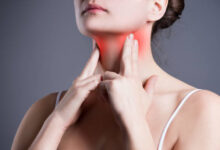disturbed sleep
For some women, menopause can lead to trouble sleeping. The advice to be applied is the same as in the case of classic insomnia: it is first necessary to take care to banish stimulants (coffee, tobacco, alcohol, etc.).
In addition, taking sleeping pills can be avoided by resorting to natural methods that have seen their effectiveness recognized, such as yoga, relaxing massages or plants in herbal tea, homeopathic granules, etc…
mood disorders
Menopause can also cause mood swings. In addition to being a disturbing event in the life of women, the drop in hormones such as estrogen or progesterone leads to hormonal upheaval.
Some women also consider menopause as a step towards old age and a loss of their femininity. This state of mind can lead to irritability or even depression.
The use of plants is a good alternative to hormone therapy. Lavender essential oil gives good results at the rate of 1 to 4 drops per day to be taken on a neutral tablet.
Osteoporosis
At menopause, the production of estrogen, a hormone that preserves bone mass, suddenly decreases causing a loss of bone resistance. To protect yourself from osteoporosis (the signs of which appear 15 to 20 years after the onset of menopause), it is important to ensure that you have a sufficiently high intake of calcium and vitamin D. It is imperative to stop smoking and drinking too much alcohol while practicing a sports activity in order to maintain good physical shape.
skin aging
The drop in estrogen levels and the reduced production of collagen at menopause are responsible for the acceleration of skin aging. To remedy this, natural methods can be used. Alpha hydroxy acids, known as AHAs or natural fruit acids found in some beauty products, visibly improve the appearance of the skin. Vitamin C and green tea also limit skin aging. For greater results, the use of botox can be considered.
The decrease in libido
Female sexual desire is linked to the presence of estrogens and androgens, levels which drop at menopause. In addition, the absence of periods causes the vaginal mucous membranes to dry out in some women, thus reducing sexual stimulation. Communication within the couple is certainly the key solution to countering low libido, but it is possible to use lubricants and work to control the stress and anxiety that paralyzes many women.
Les risques cardio-vasculaires
A la ménopause, le taux de « mauvais » cholestérol (LDL) a tendance à augmenter, tout comme les risques de maladies cardio-vasculaires. Pour se protéger face à ces dangers, l’alcool et le tabac sont à bannir impérativement.
Il faut également miser sur une alimentation saine et équilibrée, riche en fruits et légumes, qui apportent à l’organisme des fibres solubles, en isoflavones que l’on peut trouver dans le soja et en Omégas-3. L’activité physique, même modérée est aussi reconnue pour réduire les risques cardiaques.
Weight gain
A majority of women tend to gain a little weight during menopause. However, we must resist the temptation to go on a strict diet because during this period, the risk of deficiencies must absolutely be avoided. It is rather necessary to take care to have a healthier food by avoiding the prepared meals, to be with the listening of its body and its hunger and to move regularly. While boosting morale, activity will reduce caloric intake and therefore limit weight gain.
Hot flashes
50 to 80% of women are affected by hot flashes during menopause, which are sometimes accompanied by palpitations and night sweats. They are characterized by a sudden rise in body temperature. It is generally because of these hot flashes that women are tempted to resort to hormone therapy. It is advisable to always have a refreshing drink with you and learn to relax. Homeopathy also seems to give good results.

